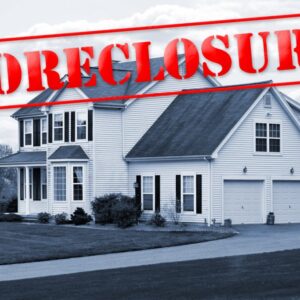POWER OF SALE AND FORECLOSURE
In Ontario, most homeowners will do what they can financially to avoid falling behind on their mortgage payments and risk losing their home, but some unfortunately will not be able to keep up. That’s when two terms start getting used by mortgage lenders—power of sale and foreclosure—and while they may often result in the same end (losing one’s home), they are two very different processes presenting different options and consequences to homeowners dealing with them.
Most mortgage lenders dealing with defaulting homeowners will prefer the power of sale process as it is quicker and less costly. This process begins by sending a Notice of Sale Under Mortgage to the homeowner and anyone else with a legal interest in the property (other mortgage lenders, lien holders, the homeowner’s spouse) no earlier than 15 days after default.
There is then a 35-day period (“redemption period”) during which the mortgage lender cannot take any further steps to sell the property, to give the homeowner time to either bring the mortgage back into good standing or pay off the mortgage completely. If the homeowner cannot do either, the lender will sue for the full amount owing, obtain default judgment from the Court if the homeowners do not defend the Claim, and then obtain a Writ of Possession from the court allowing it to take over the property and sell it.
If there is any money left after the mortgage, other claims on the property and legal fees have been paid, the borrower will receive the rest. If there is nothing, the borrower will have to pay the shortfall.
Foreclosure begins with the same process as a power of sale but the lender must sue the borrower in court for the full amount of the mortgage and a writ of possession. While this process generally takes longer than a power of sale, the borrower gets to take title to the property by court order and can sell the property without having to pay the borrower any profits made from the sale.
If you are a homeowner who has defaulted on your mortgage, Alemi Law Group can advise on options to deal with either process that could allow you to keep your home. It’s the biggest investment most people make—don’t lose it if you can avoid it!
Disclaimer: To the full extent permitted by law, Alemi Law Group does not make any warranties, conditions, representations of any kind as to the accuracy of this publication and other contents on this website. Accessing or using this website does not form a lawyer-client relationship. Individuals and companies do not become clients of Alemi Law Group and/or its lawyers until such time as Alemi Law Group accepts to represent and that it is confirmed in a formal retainer agreement outlining the exact nature of the legal relationship.


Add a Comment